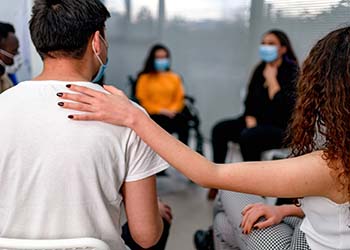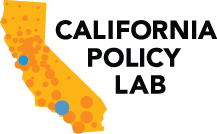- By:
- Category: Criminal Justice

POLICY BRIEF: The Impacts of the Make-it-Right Program on Recidivism ![]()
JOURNAL ARTICLE: Can Restorative Justice Conferencing Reduce Recidivism? Evidence from the Make-it-Right Program ![]()
(Published January 2024 in Econometrica) Shem-Tov, Yotam, Steven Raphael, and Alissa Skog (2024): “Can Restorative Justice Conferencing Reduce Recidivism? Evidence from the Make-It-Right Program,” Econometrica, 92(1), 61-78. Supplemental Material
PRESS RELEASE: Report: San Francisco Juvenile Restorative Justice Program Reduces Probability of Rearrest
The Make-it-Right (MIR) restorative justice conferencing program, run by the San Francisco District Attorney’s office, serves youth ages 13 to 17 who would have otherwise faced relatively serious felony charges (like burglary). To understand if this program could help reduce recidivism, former San Francisco District Attorney George Gascón implemented a randomized control trial (RCT) from October 2013 to May 2019 and the office partnered with CPL to analyze the results. The MIR program continued after the RCT ended and District Attorney Chesa Boudin expanded eligibility for the program after he took office in 2020.
Eligible youth were randomly assigned to participate in MIR (treatment group) or to a control group in which they faced felony prosecution. Following extensive preparation, participating youth met with the people they harmed or a surrogate, accepted responsibility for the impact of their actions, and came to an agreement for how the youth could repair to the greatest extent possible the harm they caused. If the youth followed through with the repair actions outlined in the agreement, charges against them were never filed. If they did not, they faced traditional juvenile felony prosecution.
Youth given the opportunity to participate in MIR had a substantially lower likelihood of being rearrested than similarly situated youth who were prosecuted in the traditional juvenile justice system.
Listen to a podcast with Professor Yotam Shem-Tov about the Make-It-Right study: Probable Causation: Can Restorative Justice Conferencing Reduce Recidivism? Evidence From the Make-It-Right Program by Yotam Shem-Tov, Stephen Raphael, and Alissa Skog (December 7, 2021)
Select Media Coverage
WitnessLA: Youth Diversion Programs In LA And SF Offer Kids Accused Of Serious Crimes A Chance To Make Things Right (July 23, 2022)
The Imprint: Study of Bay Area Restorative Justice Program Reveals Promise for Juveniles Who Commit Serious Crimes (March 7, 2022)
KQED: Interview about Make-it-Right: Alissa Skog, a co-author of this policy brief and Demarris Evans from the San Francisco District Attorney’s Office (January 27, 2022)
Davis Vanguard: New Data Supports DA Boudin’s Record, Reveals 2021 Filed Charges Increased in SF (April 18, 2022)
Mission Local: Data shows Chesa Boudin files charges more than prior DAs (April 11, 2022)
San Francisco Chronicle: Chesa Boudin’s office just released new data on the S.F. district attorney’s charging rates and case outcomes. Here’s what it shows. (March 4, 2022)
Suggested Citation
Raphael, S., Shem-Tov, Y., Skogg, A. (2022). The Impacts of the Make-it-Right Program on Recidivism. California Policy Lab. https://www.capolicylab.org/impacts-of-make-it-right-program-on-recidivism/
